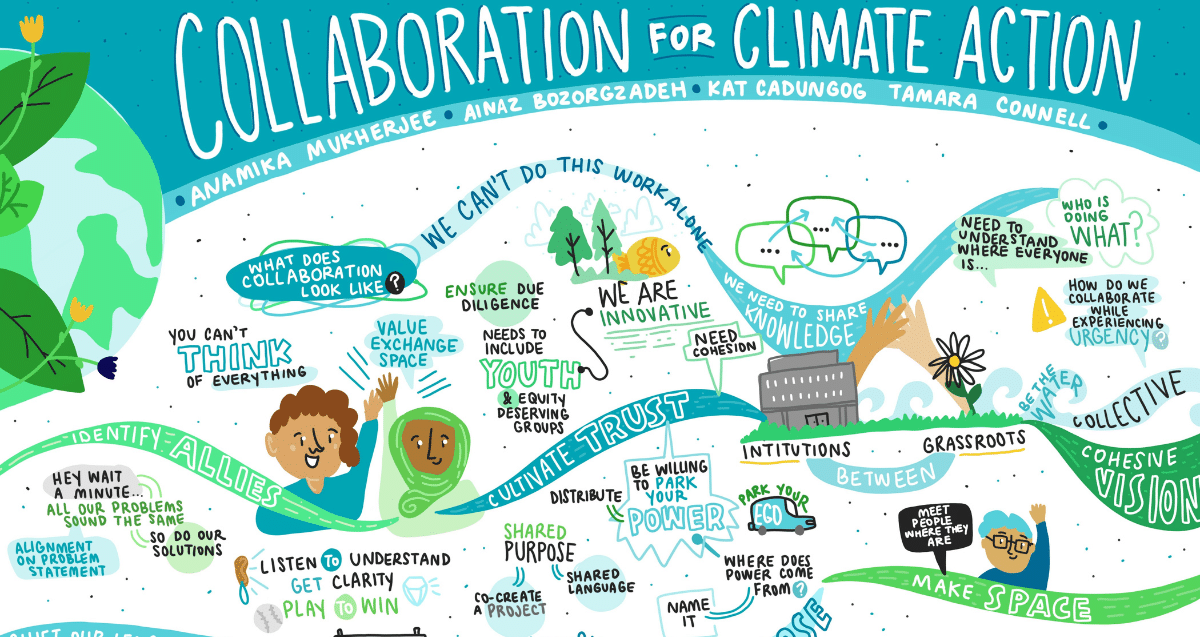Audio Graphic Recording
The ASI team had the pleasure of hosting our first Let’s Talk Leadership event earlier this month. We envisioned this series to be a space where people could come together to talk candidly about the leadership skills required to move toward a low-carbon, socially-inclusive future. With authenticity top of mind, we made the decision not to record our sessions to encourage open and honest conversations. What amazed us was the level of passion demonstrated by the attendees and speakers, and their commitment to collaboration was nothing short of inspiring.
Instead of recording this event, we had a graphic recorder put together an illustration capturing some of our collective thoughts. The first event in this series focused on collaboration for climate action, which allowed us to explore how collaboration can promote a shared understanding of sustainability challenges and solutions. By working together, we have the chance to be greater than our sum of parts, offering insights and perspectives that would not be available alone.
So what does it actually mean to bring a collaborative mindset to the workplace? We’ve compiled a few key takeaways from the event if you weren’t able to join us:
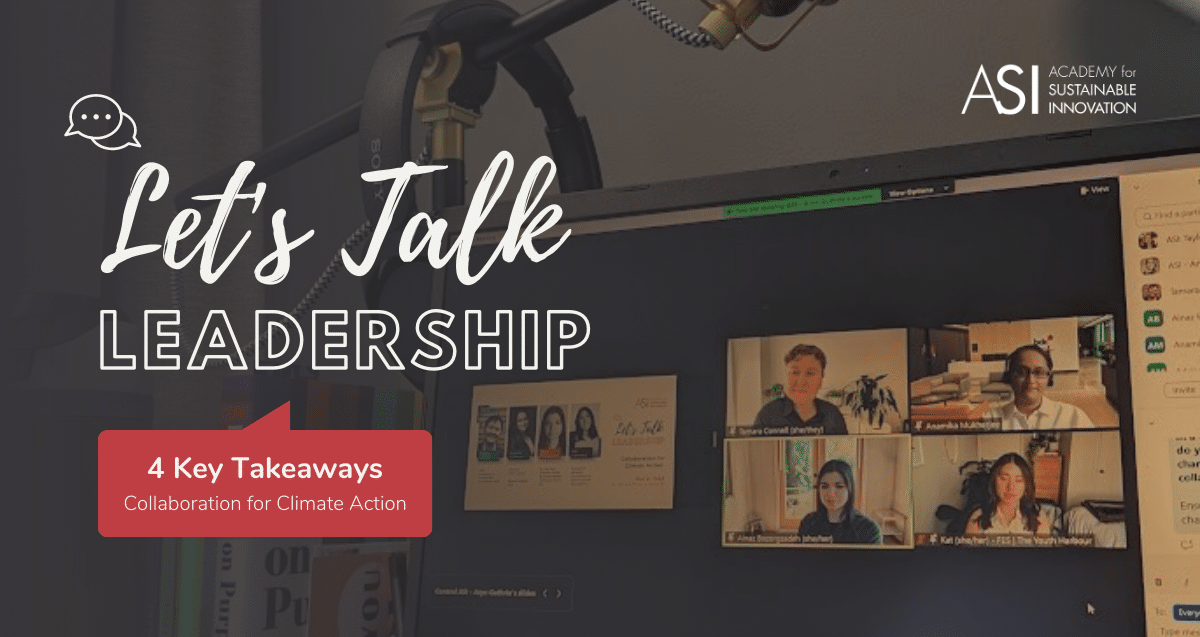
Trust is Essential
The word “trust” made an appearance multiple times in our conversations, and for good reason. Anamika Mukherjee pointed out that without trust climate action work cannot move forward; trust forms the foundation upon which meaningful collaborations can thrive. When stakeholders trust each other’s intentions, expertise, and commitment, they are more likely to work together, share knowledge, and pool resources towards common climate goals.
Finding Our Allies
The ASI team (especially Program Manager, Taylor Stimpson) loves a good nature metaphor. When talking about collaboration, Ainaz Bozorgzadeh emphasized that good collaboration requires us to find our allies. That we must act like water, together – in this way we can use our collective forces to erode systems that no longer serve us and create streams of change.
Allies provide strength in numbers and amplify the impact of individual efforts. By collaborating with like-minded individuals, organizations, and communities, we can form a powerful force to steward meaningful change.
Create Conditions for Collaboration
One topic that was brought up was the importance of how to engage meaningfully to create the conditions for successful collaboration. Kat Cadungog used the analogy of placing a fish in the forest – because the forest lacks the conditions to support the fish’s survival, it would have no chance to thrive. The same can be said for conditions to support effective collaboration. If the right conditions aren’t there for all the stakeholders to participate, the collaboration will fail.
To foster the right conditions for collaboration we need to have open communication, share our knowledge, and provide access to resources that can support a cohesive vision. Clear goals and shared purpose can serve as guiding beacons to align us toward collective climate action.
Use Your Power Wisely and Intentionally
Your power has the potential to create meaningful transformation! All three of our speakers and attendees highlighted the need to use your power intentionally. We talked about how important it is to be aware of it, to understand where it comes from, and to know the impact your power has on those around you. This includes:
- Acknowledging Your Power: By acknowledging power dynamics, we have the opportunity to create a space that encourages open communication, active participation, and shared decision-making. This allows for a more inclusive and balanced collaboration where everyone’s contributions are valued.
- Leveraging Your Power: By understanding your power, you have the chance to leverage it for the greater good. You can use your spheres of influence to advocate for diverse perspectives and facilitate a collaborative process that values the input of all stakeholders. One of our attendees said it beautifully, “power should be used as a tool that we can share, redistribute, and use to our advantage to shift systems.”
- Being Mindful of Your Power: Be mindful of how your power and actions impact others and approach collaborations with humility and openness. By actively listening, valuing different viewpoints, and seeking consensus, you can mitigate power imbalances and foster a collaborative environment.
About the Speakers
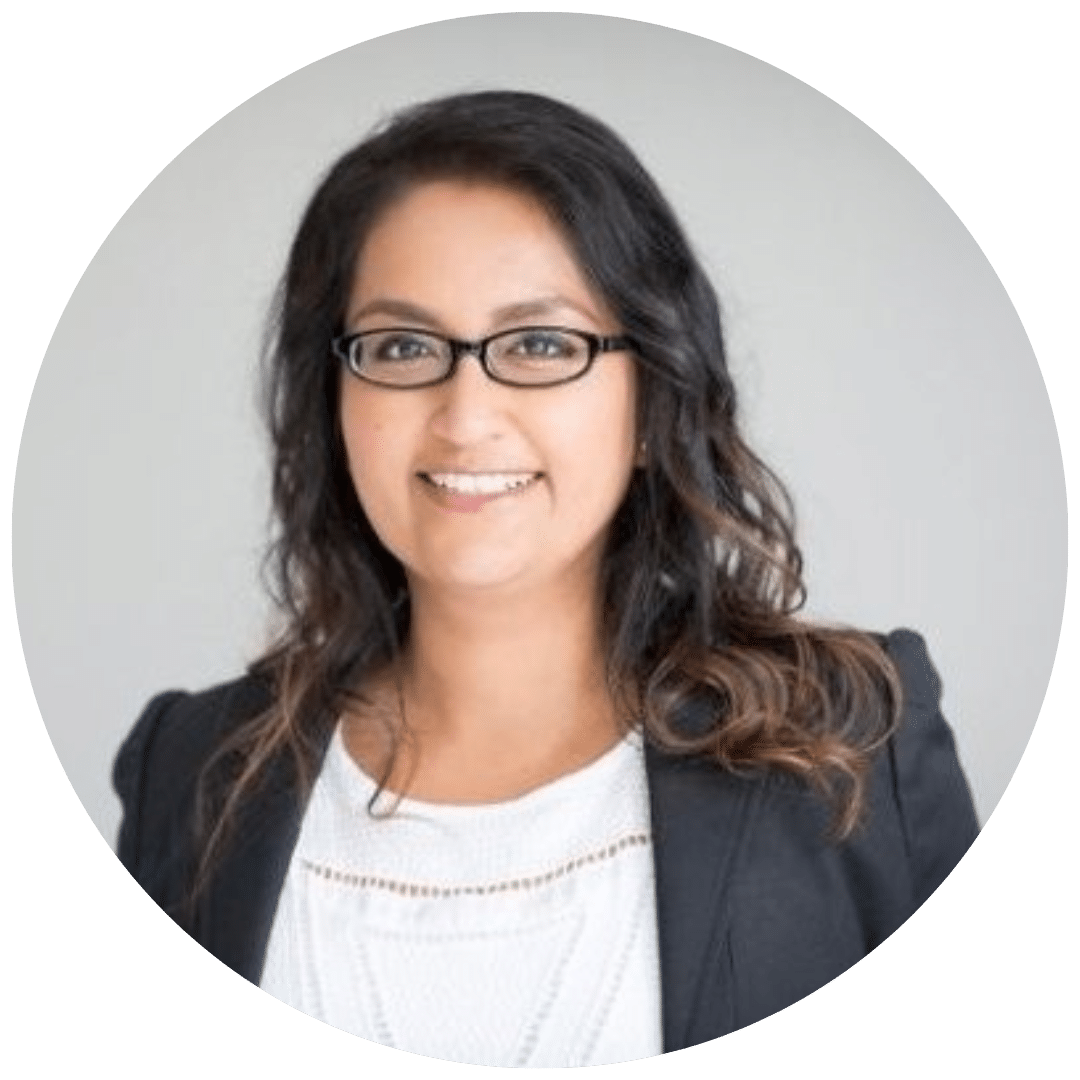
Anamika Mukherjee (she/her)
Partner, BDC Capital; Board Member, ASI
Anamika Mukherjee is a recognized decarbonization and energy transition thought leader in Canada. She’s a Partner at BDC Capital’s Sustainability Venture Fund, where she is enabling Canadian entrepreneurs with bold ideas build global companies to enable Canada’s net-zero goal. Prior to venture capital, she held several impactful roles, including the head of technology development at Cenovus Energy, and Chief of Staff to the Resources of the Future Economic Strategy Table, at Innovation, Science, Economic Development Canada.
She’s been recognized for her extensive work in sustainability and decarbonization through several awards – a Young Women in Energy Award in 2015, Natural Resources Canada’s Generation Energy in 2017, two Deputy Minister’s Awards from Innovation, Science and Economic Development Canada in 2018 and 2019, and featured by the Canada West Foundation as being a thought leader in decarbonization and energy transition in 2022.
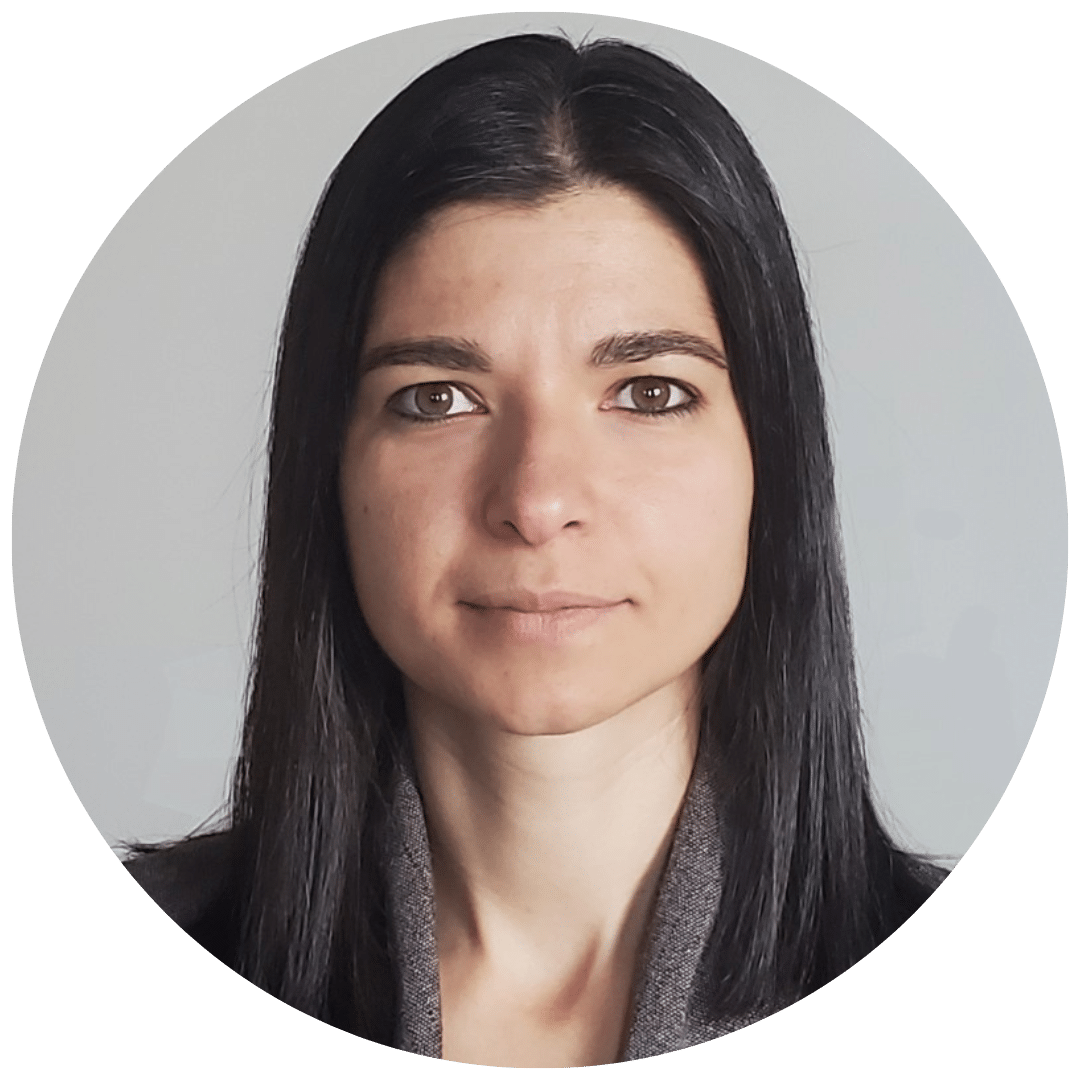
Ainaz Bozorgzadeh (she/her)
Senior Advisor, Climate Action and Sustainability, Technical Safety BC
Ainaz is an uninvited immigrant from Iran. She lives in Ch’kwelhp on the unceded ancestral territory of the Sḵwx̱wú7mesh Nation, also known as Gibsons, BC. Ainaz is grateful to be raising her daughter in an environment surrounded with abundant nature and free of systemic oppression against women.
Ainaz studied mechanical engineering at UBC and has focused her work over the past 15 years on addressing climate change in buildings and energy systems. Ainaz serves on the Engineers and Geoscientists Climate Change Advisory Group and international PIEVC Program Advisory committee.
She has been in her current role at Technical Safety BC since 2021, where she is developing the climate resiliency program to document and mitigate technical safety risks related to extreme weather impact on technical systems. She is passionate about partnerships and committed to collaboration as a way to progress community and climate resiliency.

Kat Cadungog (she/her)
Executive Director, Foundation for Environmental Stewardship
Kat (she/her) is the Executive Director of the Foundation for Environmental Stewardship (FES). Kat’s main focus is building The Youth Harbour, a youth-for-youth climate support system focused on supporting youth climate leaders with financial, technical, and networking support to amplify and scale their work, so far raising $1.5M dollars for the project. Kat is a Future of Good Young Impact 2022 Leader, Clean50 nominee, and Corporate Knights Top Sustainability Leader 30 under 30.
Kat is passionate about activating in the local community, whether organizing grassroots campaigns and clothing swaps or volunteering at the University of Calgary as an Advisory member or the local foundation. She has worked on a diversity of projects from volunteering at Calgary Legal Guidance, presenting systems research on the national pharmacare, or co-founding literacy campaigns. Kat is passionate about empowering youth to take impactful action on sustainable development, strengthening and amplifying the youth force in the Canadian climate movement.

